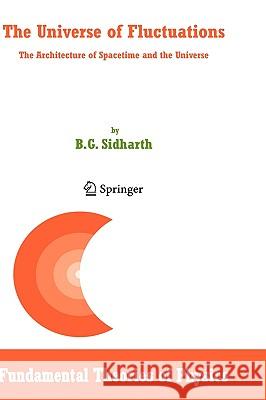The Universe of Fluctuations: The Architecture of Spacetime and the Universe » książka
The Universe of Fluctuations: The Architecture of Spacetime and the Universe
ISBN-13: 9781402037856 / Angielski / Twarda / 2005 / 184 str.
The Universe of Fluctuations: The Architecture of Spacetime and the Universe
ISBN-13: 9781402037856 / Angielski / Twarda / 2005 / 184 str.
(netto: 383,36 VAT: 5%)
Najniższa cena z 30 dni: 385,52
ok. 22 dni roboczych
Dostawa w 2026 r.
Darmowa dostawa!
In 1997, contrary to the ruling paradigm which was that of a dark matter ?lled, decelerating universe, my work pointed to a dark energydriven- celerating universe with a small cosmological constant. Moreover, the many supposedly accidental Large Number relations in cosmology, including the mysterious Weinbergformula were now deduced from the theory. Obser- tionalcon?rmationforthisscenariocamein1998, whiledarkenergyitselfwas ?nally recon?rmed in 2003, thanks to the Wilkinson Microwave Anisotropy Probe and the Sloan Digital Sky Survey. The 1997, and subsequent work was the consequence of mainly three cons- erations: dark energy or the well known Zero Point Field, fuzzy spacetime and ?uctuations. Indeed String Theory and Quantum Gravity approaches have had to discard the smooth spacetime of General Relativity and Qu- tum Field Theory, in a quest for a uni?ed description of these two pillars of twentieth century physics. This book is the result of some seventy ?ve papers published in international journals, andpartlyanearlierbook,"TheChaoticUniverse: FromthePlanck to the Hubble Scale" (Nova Science, New York, 2001), as also several lectures delivered in Universities and institutes in the United States, Canada and - rope. It describes how, in a simple and somewhat conventional framework, an underpinning of Planck scale oscillators in the ubiquitous Zero Point Field or dark energy leads to a uni?ed description of phenomena involving elementary particles and the cosmos. In particular, apart from the cosmology mentioned above, these considerations lead to a uni?ed description of all interactions, includinggravitation, thoughinanextended gauge ?eld treatment.











